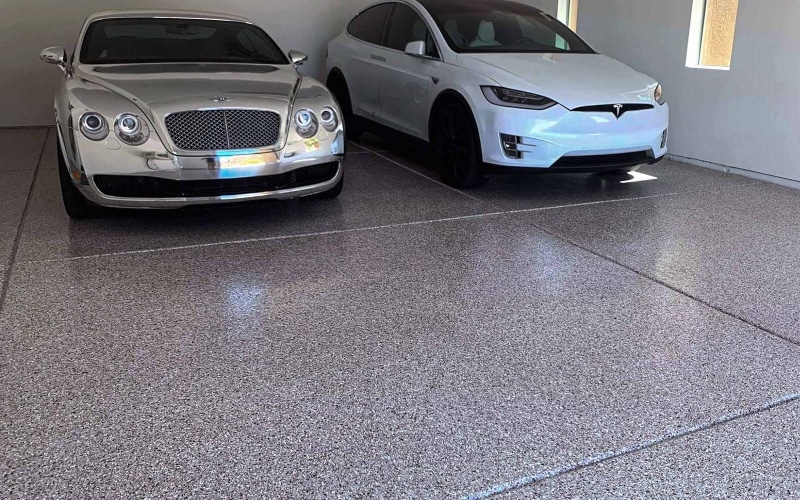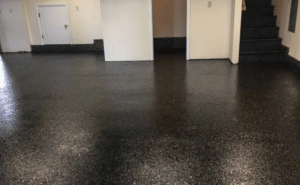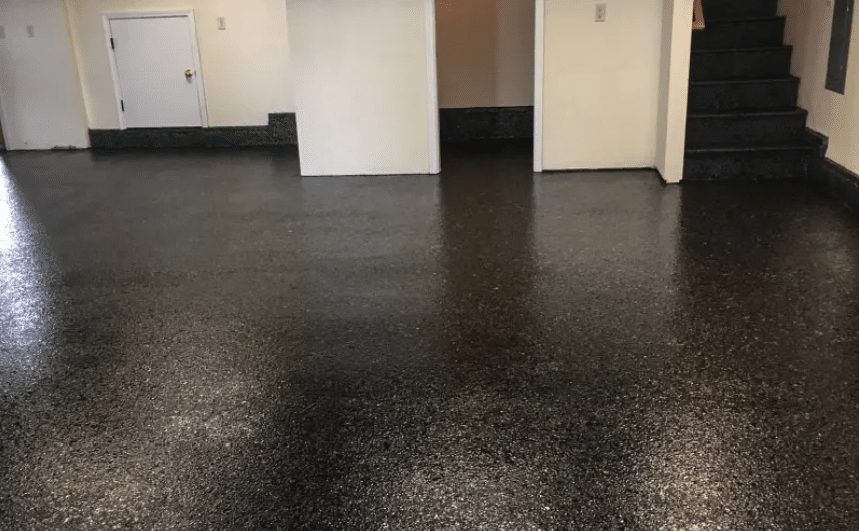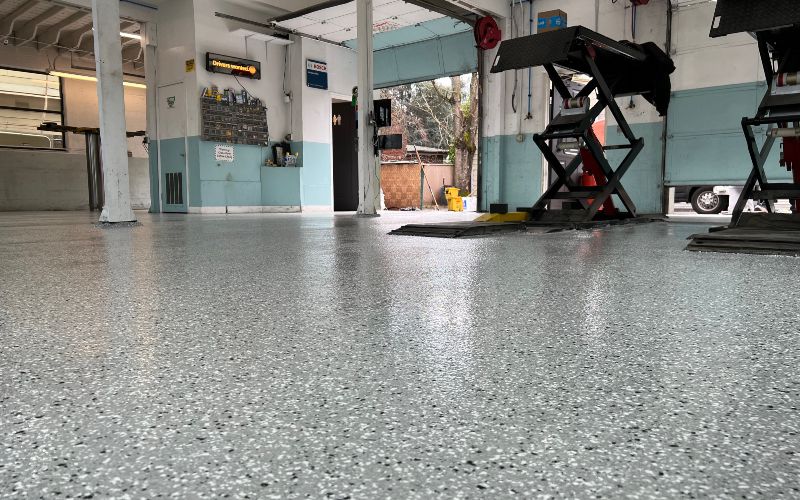Looking to Epoxy Your Garage Floor? Here’s What You Need to Know About Cost to Epoxy a Garage Floor
Transform your garage floor with durable and glossy epoxy flooring! Upgrade its appearance and longevity with this popular option favored by homeowners. Dive into our guide to understand the costs involved – from materials to labor, we cover it all. Whether you’re a DIY enthusiast or prefer professionals, we’ve got you covered. Make informed decisions about cost to epoxy garage floor and create a space you’ll be proud of.
Understanding Epoxy Flooring
Epoxy flooring is a type of surface coating that involves applying a layer of resin and hardener over concrete. This mixture creates a strong, durable bond that not only protects floors but also provides a high-gloss finish that can enhance the aesthetics of any space. The beauty of epoxy flooring lies in its resistance to stains, cracks, and chemical spills, making it ideal for garages that often encounter these issues. Understanding the composition and benefits of epoxy can help homeowners determine if it is the right choice for their garage enhancement project.

Comparing Costs with Alternative Garage Flooring Options
When considering the cost of epoxy flooring, it’s essential to compare it with other garage flooring alternatives. Concrete sealants are a cheaper upfront option but may require more frequent reapplication, leading to higher costs over time. Interlocking tiles provide a modular solution that homeowners can install themselves; however, they may be more expensive than epoxy per square foot and could shift or crack under extreme pressure. Another option is stained concrete, which offers a unique look but can be slippery when wet and might require professional installation. Epoxy, while potentially costlier upfront, offers a balance between durability and aesthetics, potentially yielding greater value over its lifespan as compared to these alternatives.
Key Factors Influencing the Cost of Epoxy Flooring
When considering the application of epoxy flooring, it’s essential to take into account the various factors that can affect the overall cost. The size of the garage floor is the most direct factor – larger spaces require more materials and labor, leading to higher costs. The condition of the existing concrete also plays a significant role; floors with cracks or uneven surfaces may require additional preparation work, such as filling and leveling, before epoxy can be applied. The type and quality of the epoxy used will also impact the price, with premium or specialized coatings coming at a higher cost. Furthermore, the complexity of the chosen design and the inclusion of additional features such as non-slip additives, decorative patterns, or company logos can add to the bottom line. Lastly, labor costs can vary widely depending on the region and whether the project is contracted to professionals or done as a DIY project. By understanding these key factors, homeowners can better estimate the investment needed to epoxy their garage floors.
The Advantages of Professional Installation
Professional installation of epoxy flooring comes with several noteworthy advantages. The experience and expertise of professionals ensure a high-quality finish that might be challenging to attain through DIY methods. They are equipped to handle the necessary floor preparations, which can be extensive, and they understand how to apply epoxy evenly to prevent bubbling or peeling. Furthermore, hiring professionals usually comes with a warranty, providing homeowners peace of mind that any issues will be addressed without added costs. Professionals also have access to industrial-grade epoxy products that may not be available to the average consumer, potentially leading to a more durable and long-lasting floor.
Cost Comparison and Deciding What’s Best for You
Evaluating whether to DIY or hire professionals for epoxy flooring installation requires considering not just the upfront costs but also the long-term value. DIY projects can seem enticing due to lower initial expenses – the cost of materials and possibly rental equipment – yet any errors in application could result in additional costs for repairs or even a complete redo. On the other hand, professional installation, while more expensive upfront, ensures that the job is done right the first time, lasting longer and looking better, which can be more cost-effective in the long run. When deciding what’s best for you, consider your experience level, the time investment you’re willing to make, potential cost savings, and the importance of a warranty. Weighing these factors will help guide you toward the decision that meets your needs, budget, and desired outcomes for your garage space.

Strategies for Reducing Preparation Costs
Reducing the costs of preparation work before applying an epoxy coating to a garage floor can be achieved with several practical strategies. Homeowners can save money by doing as much of the preparation work as possible by themselves. This includes thoroughly cleaning the floor, degreasing it, and removing any previous coatings or sealants. For those who have some experience with minor concrete repairs, small cracks, and holes can be filled and leveled using readily available DIY concrete repair kits, rather than hiring a professional to do the job. Additionally, shopping around for the best prices on these materials can further reduce upfront expenses. By investing time to properly prepare the floor, homeowners can prevent costly professional redo due to poor adhesion or finish. It’s crucial, however, to follow the epoxy manufacturer’s instructions closely, to ensure long-term durability and to validate any warranties.
Avoiding Common Pitfalls to Minimize Additional Costs
To avoid unforeseen expenses during the epoxy application process, it is paramount to circumvent common mistakes. First and foremost, do not underestimate the importance of proper floor preparation as it is the cornerstone of a successful epoxy application. Skipping steps or improper cleaning can lead to poor adhesion, resulting in peeling or bubbling that will necessitate a costly do-over. Additionally, be careful not to buy low-quality epoxy kits; investing in a superior product often translates to a longer-lasting floor and can avert the need for early reapplication. Always measure the floor area accurately to purchase the correct amount of epoxy, as buying too little will interrupt the application process, and too much will waste money. Lastly, be mindful of the temperature and humidity conditions recommended for epoxy curing. Applying the coating in unsuitable climate conditions can ruin the finish, thereby incurring additional costs for repair or reapplication.
In conclusion, when contemplating epoxy flooring for your garage, it is vital to consider every associated cost to make an informed decision. Whether you opt for DIY or professional installation, understanding the importance of preparation, selecting quality materials, and avoiding common pitfalls are crucial steps that can save you both time and money. Epoxy flooring can be an economically sound choice with the potential to raise property value and enhance the functionality and appearance of your garage. Ultimately, by carefully weighing the upfront costs against the long-term benefits of epoxy, homeowners can ensure that they invest wisely in a solution that meets their specific requirements and budget, all while achieving a resilient and visually appealing garage floor.
https://www.google.com/maps?cid=2589512530409833629









